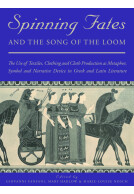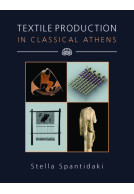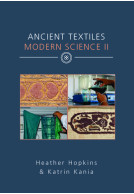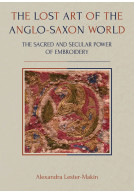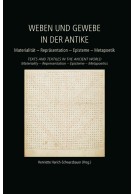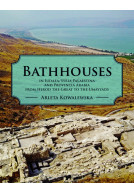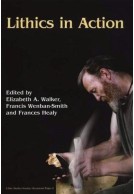Google Books previews are unavailable because you have chosen to turn off third party cookies for enhanced content. Visit our cookies page to review your cookie settings.
Prehistoric, Ancient Near Eastern & Aegean Textiles and Dress (Hardback)
An Interdisciplinary Anthology
Imprint: Oxbow Books
Series: Ancient Textiles
Pages: 224
Illustrations: b/w and colour illustrations
ISBN: 9781782977193
Published: 8th January 2015
Script Academic & Professional
Series: Ancient Textiles
Pages: 224
Illustrations: b/w and colour illustrations
ISBN: 9781782977193
Published: 8th January 2015
Script Academic & Professional
You'll be £40.00 closer to your next £10.00 credit when you purchase Prehistoric, Ancient Near Eastern & Aegean Textiles and Dress. What's this?
+£4.99 UK Delivery or free UK delivery if order is over £40
(click here for international delivery rates)
Order within the next 8 hours, 15 minutes to get your order processed the next working day!
Need a currency converter? Check XE.com for live rates
(click here for international delivery rates)
Order within the next 8 hours, 15 minutes to get your order processed the next working day!
Need a currency converter? Check XE.com for live rates
Textile and dress production, from raw materials to finished items, has had a significant impact on society from its earliest history. The essays in this volume offer a fresh insight into the emerging interdisciplinary research field of textile and dress studies by discussing archaeological, iconographical and textual evidence within a broad geographical and chronological spectrum. The thirteen chapters explore issues, such as the analysis of textile tools, especially spindle whorls, and textile imprints for reconstructing textile production in contexts as different as Neolithic Transylvania, the Early Bronze Age North Aegean and the Early Iron Age Eastern Mediterranean; the importance of cuneiform clay tablets as a documentary source for both drawing a detailed picture of the administration of a textile industry and for addressing gender issues, such as the construction of masculinity in the Sumerian kingdoms of the 3rd millennium BC; and discussions of royal and priestly costumes and clothing ornaments in the Mesopotamian kingdom of Mari and in Mycenaean culture. Textile terms testify to intensive exchanges between Semitic and Indo-European languages, especially within the terminology of trade goods. The production and consumption of textiles and garments are demonstrated in 2nd millennium Hittite Anatolia; from 1st millennium BC Assyria, a cross-disciplinary approach combines texts, realia and iconography to produce a systematic study of golden dress decorations; and finally, the important discussion of fibres, flax and wool, in written and archaeological sources is evidence for delineating the economy of linen and the strong symbolic value of fibre types in 1st millennium Babylonia and the Southern Levant. The volume is part of a pair together with Greek and Roman Textiles and Dress: An Interdisciplinary Anthology edited by Mary Harlow and Marie-Louise Nosch.
Other titles in the series...
Other titles in Oxbow Books...









